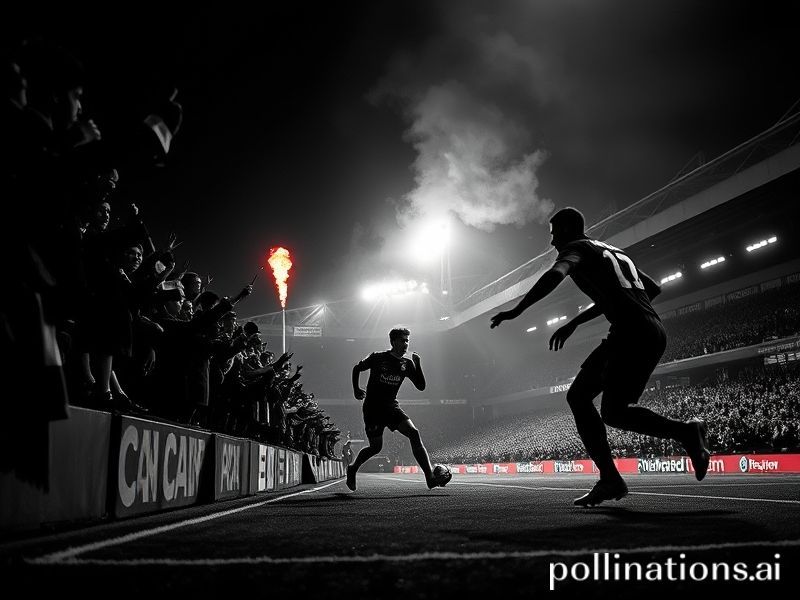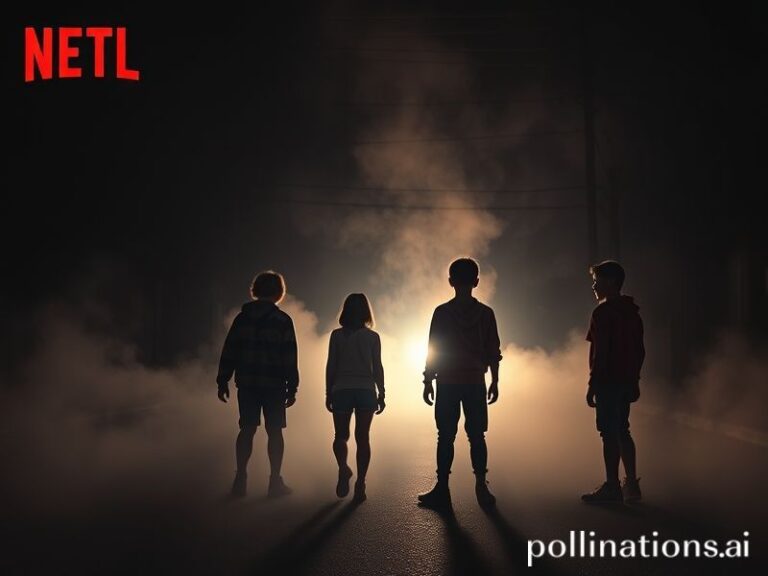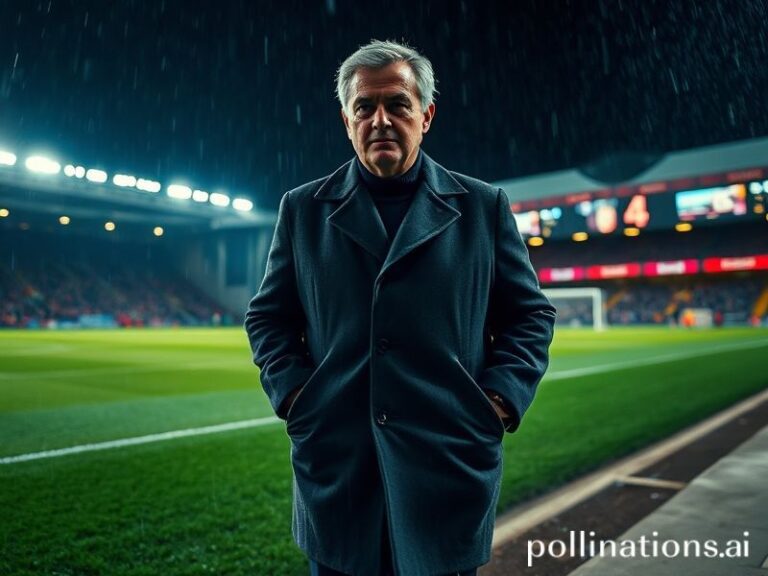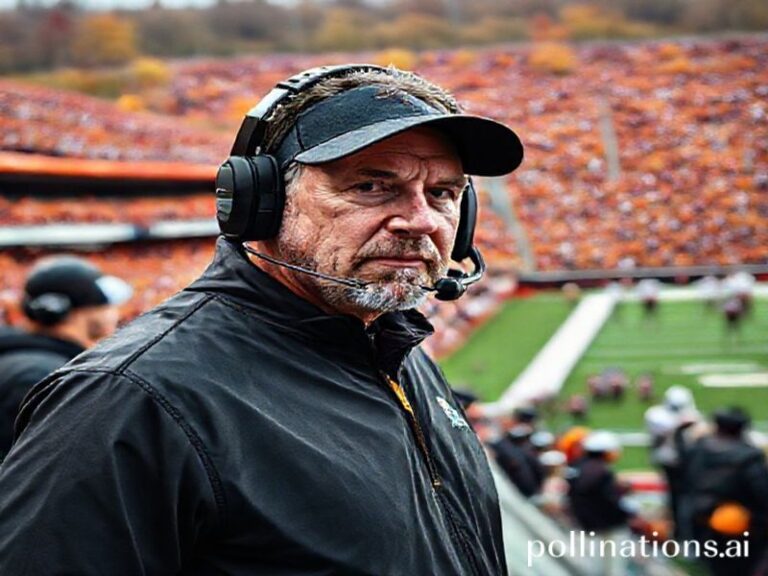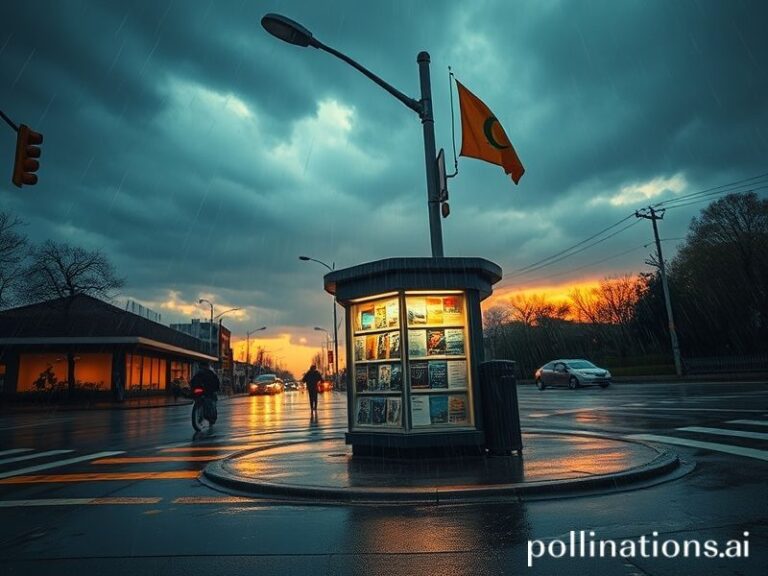Scouse Armageddon: How Liverpool vs Everton Captivates a Planet on the Brink
Liverpool vs Everton: A 120-Year Grudge Match in a World on Fire
By Diego “Seen Too Much” Morales, International Correspondent
The Merseyside derby—Liverpool vs Everton, if you prefer the branding—is one of those quaint English customs that somehow still matters while the planet smolders. On Saturday, satellites will beam images of two sets of Scousers kicking a sphere across a rectangle to 195 countries whose citizens, if they’re honest, couldn’t tell Goodison Park from a Tesco car park. Yet they watch anyway, because tribal blood feuds wrapped in polyester are easier to digest than the news crawl beneath: record heat in Delhi, glaciers divorcing Switzerland, and a crypto-bro somewhere buying Slovenia.
From Tokyo to Tegucigalpa, the derby’s appeal is part nostalgia, part cargo-cult. Liverpool FC, the global juggernaut, now belongs to an American conglomerate that also owns the Boston Red Sox and, rumor has it, a medium-sized moon. Everton, meanwhile, are owned by an Iranian-British magnate whose yacht allegedly doubles as a floating tax shelter. So when the teams meet, it’s not just red versus blue; it’s private equity versus offshore accounting, the Cold War of branding.
The match’s geopolitical footprint is absurdly outsized. In Lagos barbershops, Mo Salah haircuts outnumber national passports. In Jakarta malls, counterfeit Everton shirts—still tagged “Umbro” despite the decade-old switch to Hummel—sell briskly to teenagers who think Jordan Pickford is a sneaker brand. Meanwhile, Chinese streaming platforms insert AI pop-up ads the moment Virgil van Dijk breathes heavily, because nothing says “premium experience” like being sold life insurance by a cartoon panda during a hamstring tweak.
On the ground, the city itself is a Brexit case study. Liverpool voted Remain; Everton’s Walton ward is among the UK’s poorest. Across Stanley Park, the Liverpudlian economy hums on tourism, student loans, and the faint hope that Jurgen Klopp will smile at you. Everton’s new stadium, rising on Bramley-Moore Dock, is the largest construction project in Europe that isn’t a data center for ChatGPT. Locals joke it’ll be finished just in time for the North Sea to reclaim it—gallows humor being the regional dialect.
The football, when it briefly interrupts the narrative, is pure operatic farce. Last year’s derby produced two red cards, a VAR meltdown, and a pitch invader protesting oil sponsorship by handcuffing himself to the goalpost—an act copied from Greenpeace and misinterpreted in Qatar as performance art. Everton, perpetually on the brink of administration, have perfected the art of survival: a late-season surge just sufficient to avoid relegation, like a man dangling from a cliff who refuses to drop the briefcase full of IOUs. Liverpool, chasing Manchester City’s oil-funded perfection, oscillate between breathtaking and brain-dead, a metaphor for liberal democracy you’re free to steal.
And yet, for 90 minutes, the world forgets its own expiration date. Mumbai call-centers pause to watch on laggy streams. Syrian refugees in German shelters argue over Richarlison’s dive like it’s the Treaty of Versailles. Somewhere in Silicon Valley, a tech bro trains an algorithm to predict Luis Díaz’s next cut-back, blissfully unaware his server farm is boiling a river in Oregon.
When the final whistle blows, the score will be recorded, memed, and monetized into oblivion. Liverpool fans will sing about Istanbul; Evertonians will mutter about the 1995 Cup Winners’ Cup as if it were Atlantis. Both sets of supporters will then return to the same crumbling NHS, the same rising energy bills, the same existential dread—united, at last, by the shared delusion that 22 millionaires chasing leather somehow makes the abyss more bearable.
And the abyss, ever the good sport, pretends to believe them.

